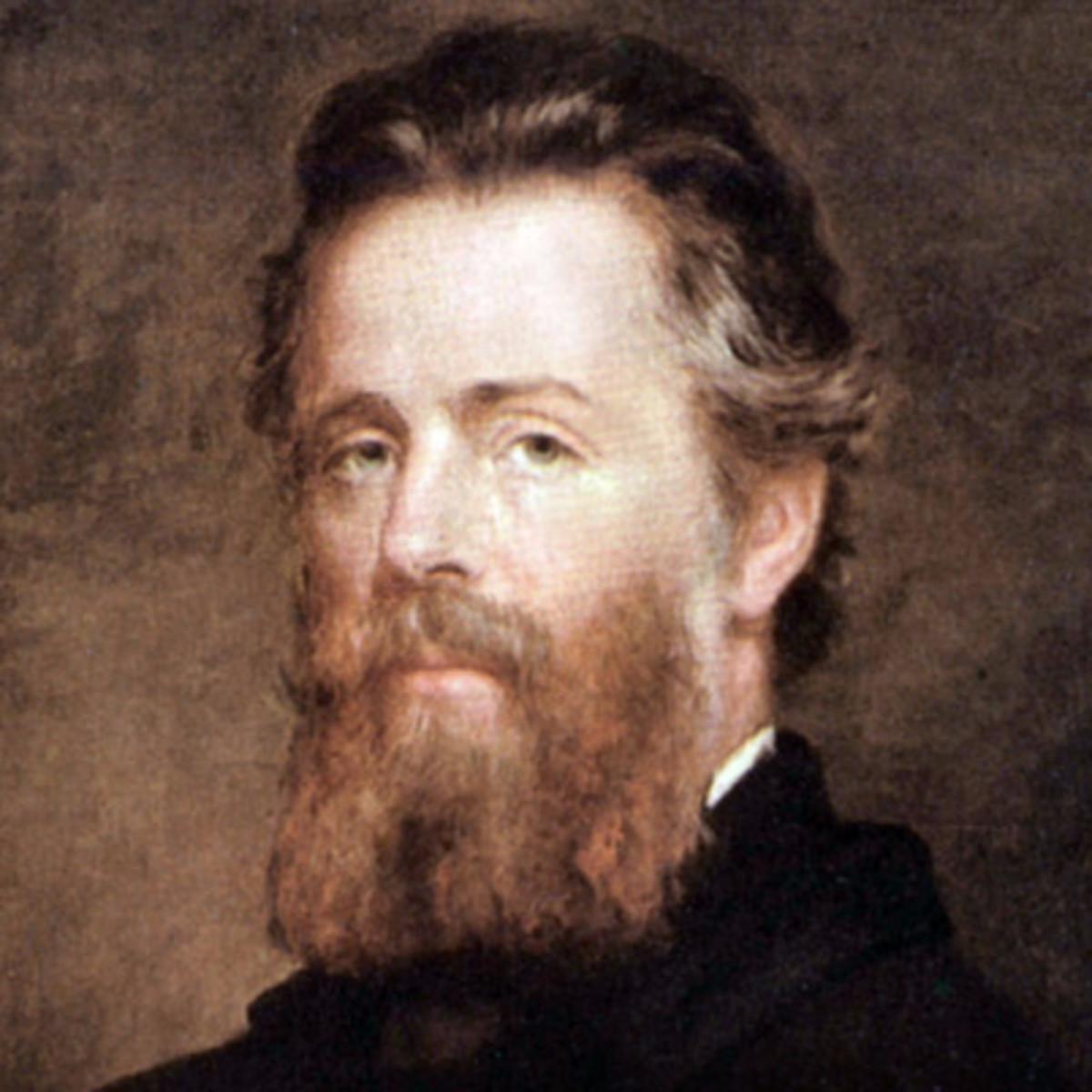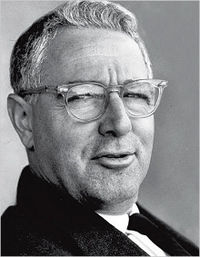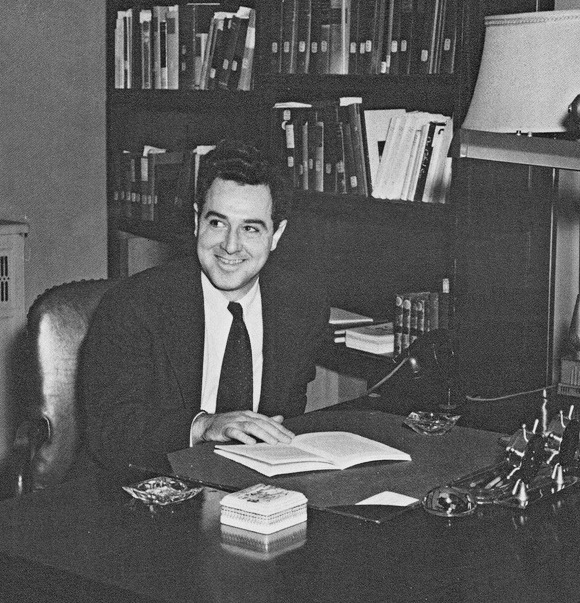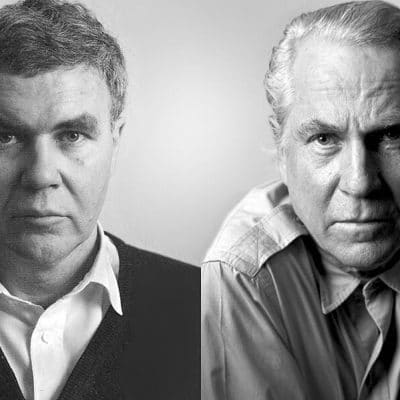
![]()
![]()
*****
At sea in the old time, the execution by halter of a military sailor was generally from the fore-yard. In the present instance, for ![]()
![]()


![]()
![]()
*****
At sea in the old time, the execution by halter of a military sailor was generally from the fore-yard. In the present instance, for ![]()
![]()

Though in many natural objects, whiteness refiningly enhances beauty, as if imparting some special virtue of its own, as in marbles, ![]()

San Francisco Windows
So hangs the hour like fruit fullblown and sweet,
Our strict and desperate avatar,
Despite that antique westward gulls lament
Over enormous waters which retreat
Weary unto the white and sensual star.
Accept these images for what they are--
Out of the past a fragile element
Of substance into accident.
I would speak honestly and of a full heart;
I would speak surely for the tale is short,
And the soul's remorseless catalogue
Assumes its quick and piteous sum.
Think you, hungry is the city in the fog
Where now the darkened piles resume
Their framed and frozen prayer
Articulate and shafted in the stone
Against the void and absolute air.
If so the frantic breath could be forgiven,
And the deep blood subdued before it is gone
In a savage paternoster to the stone,
Then might we all be shriven.

from All the King's Men (1946)
“The end of man is knowledge, but there is one thing he can't know. He can't know whether knowledge will save him or kill him. He will be killed, all right, but he can't know whether he is killed because of the knowledge which he has got or because of the knowledge which he hasn't got and which if he had it, would save him.”
*****
“There was nothing particularly wrong with them; they were just the ordinary garden variety of human garbage.”
“Politics is a matter of choices, and a man doesn't set up the choices himself. And there is always a price to make a choice. You know that. You've made a choice, and you know how much it cost you. There is always a price.”
*****
“The best luck always happens to people who don't need it.
“So I pulled the sun screen down and squinted and put the throttle to the floor. And kept on moving west. For West is where we all plan to go some day. It is where you go when the land gives out and the oldfield pines encroach. It is where you go when you get the letter saying: Flee, all is discovered. IT is where you go when you look down at the blade in your hand and see the blood on it. It is where you go when you are told that you are a bubble on the tide of empire. It is where you go when you hear that thar's gold in them-thar hills. It is where you go to grow up with the country. It is where you go to spend your old age. Or it is just where you go.”
*****
“If you want him to do it, you've got to change the picture of the world inside his head.”
*****
“...by the time we understand the pattern we are in, the definition we are making for ourselves, it's too late to break out of the box. We can only live in terms of the definition, like the prisoner in the cage in which he cannot lie or stand or sit, hung up in justice to be viewed by the populace. Yet the definition we have made of ourselves is ourselves. To break out of it, we must make a new self. But how can the self make a new self when the selfness which it is, is the only substance from which the new self can be made?”
*****
“(The law) is like a single-bed blanket on a double bed and three folks in the bed and a cold night. There ain’t ever enough blanket to cover the case, no matter how much pulling and hauling, and somebody is always going to nigh catch pneumonia. Hell, the law is like the pants you bought last year for a growing boy, but it is always this year and the seams are popped and the shankbone’s to the breeze. The law is always too short and too tight for growing humankind.”
Marcia Winslow. oil on canvas (1945
Night Hawk
From plane of light to plane, wings dipping through
Geometries and orchids that the sunset builds,

The Leg
Among the iodoform, in twilight sleep,
What have I lost? he first inquires,
Peers in the middle distance where a pain,
Ghost of a nurse, hastily moves, and day,
Her blinding presence pressing in his eyes
And now his ears. They are handling him
With rubber hands. He wants to get up.
One day beside some flowers near his nose
He will be thinking, When will I look at it?
And pain, still in the middle distance, will reply,
At what? and he will know it’s gone,
O where! and begin to tremble and cry.
He will begin to cry as a child cries
Whose puppy is mangled under a screaming wheel.
Later, as if deliberately, his fingers
Begin to explore the stump. He learns a shape
That is comfortable and tucked in like a sock.
This has a sense of humor, this can despise
The finest surgical limb, the dignity of limping,
The nonsense of wheel-chairs. Now he smiles to the wall:
The amputation becomes an acquisition
For the leg is wondering where he is (all is not lost)
And surely he has a duty to the leg;
He is its injury, the leg is his orphan,
He must cultivate the mind of the leg,
Pray for the part that is missing, pray for peace
In the image of man, pray, pray for its safety,
And after a little it will die quietly.
The body, what is it, Father, but a sign
To love the force that grows us, to give back
What in Thy palm is senselessness and mud?
Knead, knead the substance of our understanding
Which must be beautiful in flesh to walk,
That if Thou take me angrily in hand
And hurl me to the shark, I shall not die.

Scyros
snuffle and snif and handkerchief
The doctor punched my vein
The captain called me Cain
Upon my belly sat the sow of fear
With coins on either eye
The President came by
And whispered to the lords what none could hear
High over where the storm
Stood steadfast cruciform
The golden eagle sank in wounded wheels
White negroes laughing still
Crept fiercely on Brazil
Turning the navies upward on their keels
Now one by one the trees
Stripped to their naked knees
To dance upon the heaps of shrunken dead
The roof of England fell
Great Paris tolled her bell
And China staunched her milk and wept for bread


The Conscientious Objector
 (1921)
(1921)Oread
This is the Season of Death
This is the sixth winter:
this is the season of death
when lungs contract and the breath of homeless men
freezes on restaurant window panes---men seeking
the sight of rare food
before the head is lowered into the upturned collar
and the shoulders haunched and the shuffling feet
move away slowly, slowly disappear
into a darkened street.
This is the season when rents go up:
men die, and their dying is casual.
| "Crowds around post office. Lower East Side, New York," by Dorothea Lange 1936 |
| REPOSITORY: Library of Congress Prints and Photographs Division Washington, D.C. 20540 USA |
The eyes pursue you even in sleep and
when you awake they stare at you from the ceiling;
you see the dead face peering from your shoes;
the eggs at Thompson's are the dead man's eyes.
Work dims them for eight hours, but then--
the machines silent--they appear again.
Along the docks, in the terminals, in the subway, on the street,
in restaurants--the eyes
are focused from the river
among the floating garbage
that other men fish for,
their hands around poles
almost in prayer--
wanting to live,
wanting to live! who also soon
will stand propped by death against a stone-cold wall.
(1935)


from Cathedral (1983)
Something about the church and the Middle Ages was on the TV. Not your run-of-the-mill TV fare. I wanted to watch something else. I turned to the other channels. But there was nothing on them, either. So I turned back to the first channel and apologized.
“Bub, it’s all right,” the blind man said. “It’s fine with me. Whatever you want to watch is okay. I’m always learning something. Learning never ends. It won’t hurt me to learn something tonight. I got ears,” he said.
We didn’t say anything for a time. He was leaning forward with his head turned at me, his right ear aimed in the direction of the set. Very disconcerting. Now and then his eyelids drooped and then they snapped open again. Now and then he put his fingers into his beard and tugged, like he was thinking about something he was hearing on the television.
On the screen, a group of men wearing cowls was being set upon and tormented by men dressed in skeleton costumes and men dressed as devils. The men dressed as devils wore devil masks, horns, and long tails. This pageant was part of a procession. The Englishman who was narrating the thing said it took place in Spain once a year. I tried to explain to the blind man what was happening.
“Skeletons,” he said. “I know about skeletons,” he said, and he nodded.
The TV showed this one cathedral. Then there was a long, slow look at another one. Finally, the picture switched to the famous one in Paris, with its flying buttresses and its spires reaching up
to the clouds. The camera pulled away to show the whole of the cathedral rising above the skyline.
There were times when the Englishman who was telling the thing would shut up, would simply let the camera move around over the cathedrals. Or else the camera would tour the countryside, men in fields walking behind oxen. I waited as long as I could. Then I felt I had to say something. I said, “They’re showing the outside of this cathedral now. Gargoyles. Little statues carved to look like monsters. Now I guess they’re in Italy. Yeah, they’re in Italy. There’s paintings on the walls of this one church.”
“Are those fresco painting, bub?” he asked, and he sipped from his drink.
I reached for my glass. But it was empty. I tried to remember what I could remember. “You’re asking me are those frescoes?” I said. “That’s a good question. I don’t know.”
The camera moved to a cathedral outside Lisbon. The difference in the Portuguese cathedral compared with the French and Italian were not that great. But they were there. Mostly the interior stuff. Then something occurred to me, and I said, “Something has occurred to me. Do you have any idea what a cathedral is? What they look like, that is? Do you follow me? If somebody says cathedral to you, do you have any notion what they’re talking about? Do you the difference between that and a Baptist church, say?”
He let the smoke dribble from his mouth. “I know they took hundreds of workers fifty or a hundred years to build,” he said. “I just heard the man say that, of course. I know generations of the same families worked on a cathedral. I heard him say that,
too. The men who began their life’s work on them, they never lived to see the completion of their work. In that wise, bub, they’re no different from the rest of us, right?” He laughed. Then his eyelids drooped again. His head nodded. He seemed to be snoozing. Maybe he was imagining himself in Portugal. The TV was showing another cathedral now. This one was in Germany. The Englishman’s voice droned on. “Cathedrals,” the blind man said. He sat up and rolled his head back and forth. “If you want the truth, bub, that’s about all I know. What I just said. What I heard him say. But maybe you could describe one to me? I wish you’d do it. I’d like that. If you want to know, I really don’t have a good idea.”
I stared hard at the shot of the cathedral on the TV. How could I even begin to describe it? But say my life depended on it. Say my life was being threatened by an insane guy who said I had to do it or else.
I stared some more at the cathedral before the picture flipped off into the countryside. There was no use. I turned to the blind man and said, “To begin with, they’re very tall.” I was looking around the room for clues. “They reach way up. Up and up. Toward the sky. They’re so big, some of them, they have to have these supports. To help hold them up, so to speak. These supports are called buttresses. They remind of viaducts, for some reason. But maybe you don’t know viaducts, either? Sometimes the cathedrals have devils and such carved into the front. Sometimes lords and ladies. Don’t ask me why this is,” I said.
He was nodding. The whole upper part of his body seemed to be moving back and forth.
“I’m not doing so good, am I?” I said.
Fred McDarrah. Lowell & Hardwick at Bleecker & Thompson (1965)
from Pansies THE WHITE HORSE The youth walks up to the white horse, to put its halter on and the horse looks at him in silence. They are s...